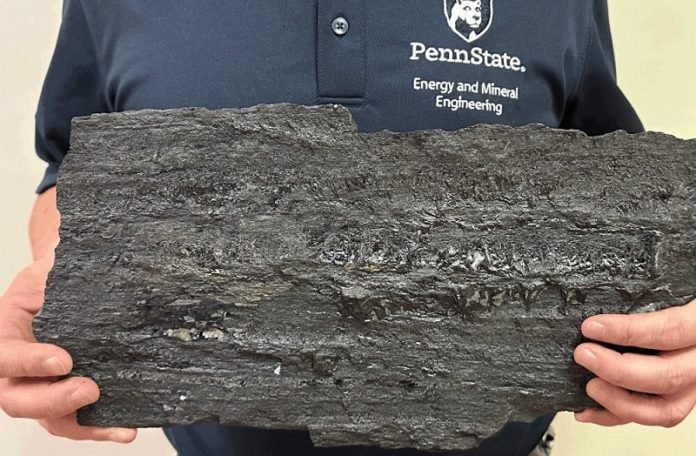
Scientists at Penn State University have discovered that coal, a fossil fuel, might be used to store hydrogen gas, a clean energy source.
This could help us reduce our reliance on fossil fuels.
Shimin Liu, an associate professor at Penn State, explained that coal could act like a “geological hydrogen battery.” This means that we could inject and store hydrogen energy in coal, and then use it when needed.
Hydrogen is a clean fuel that could be used in areas that require a lot of energy, such as transportation, electricity production, and manufacturing. However, there are still challenges to overcome before we can use hydrogen widely.
One of these challenges is finding a way to store hydrogen efficiently and affordably.
The Penn State team thinks that geological formations, like coal, could be a good solution. Coal has been studied extensively and we’ve been producing gas from it for nearly 50 years. This means we understand it well and already have the infrastructure to work with it.
To test this idea, the scientists studied eight types of coal from different parts of the United States.
They wanted to see how much hydrogen each type could hold. They found that all eight types could hold a significant amount of hydrogen, with certain types of coal from Virginia and Pennsylvania performing the best.
Coal could be a top choice for storing hydrogen because it can hold more hydrogen than other materials, and because we already have the infrastructure to work with it.
Plus, coal is widely available across the country and near populated areas.
The best places to store hydrogen might be in coalbed methane reservoirs. These are areas where we’ve already extracted natural gas from coal. Just like methane, hydrogen could be injected into the coal and would stick to it. These areas often have a layer of shale or mudstone on top that would keep the hydrogen sealed in until we needed to use it.
The scientists had to design special equipment to conduct their experiments because coal interacts with hydrogen differently than it does with other gases. They found that certain types of coal are good candidates for storing hydrogen.
This discovery could bring new economic opportunities to coal mining communities while also helping to build a hydrogen infrastructure in the United States.
Future research will focus on how quickly hydrogen can be injected and pumped back out of coal.
Source: Penn State University.



